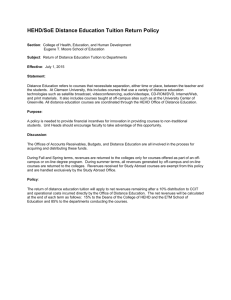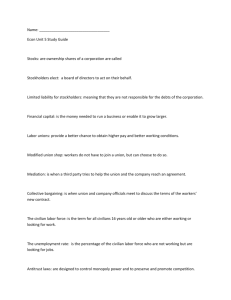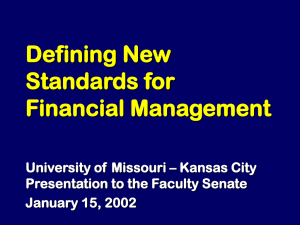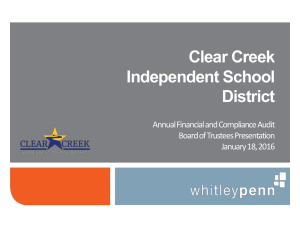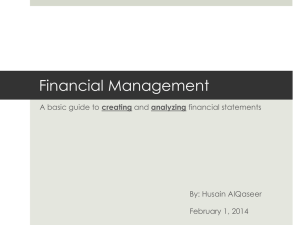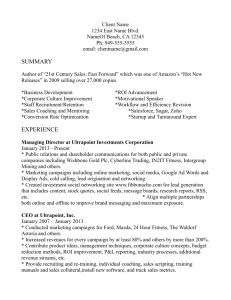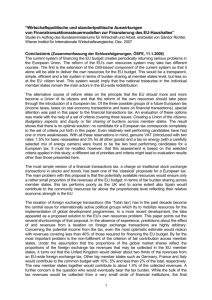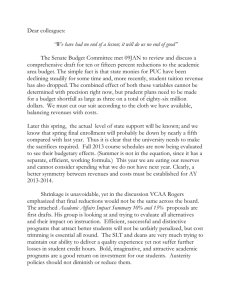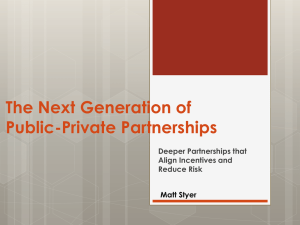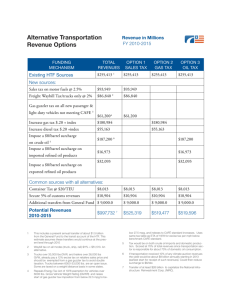The Resource Curse
advertisement
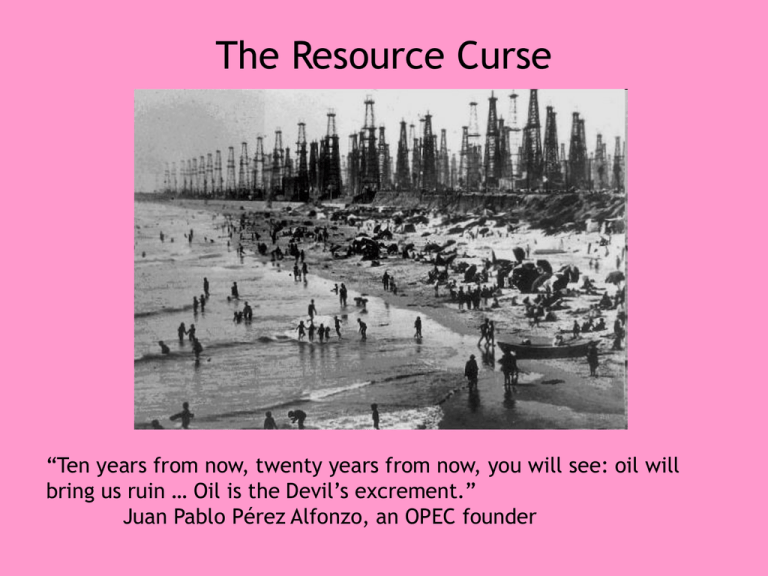
The Resource Curse “Ten years from now, twenty years from now, you will see: oil will bring us ruin … Oil is the Devil’s excrement.” Juan Pablo Pérez Alfonzo, an OPEC founder Themes of Crude World • Oil is becoming scarce • Oil is a source of fabulous riches • Oil pushes people into corruption & violence • Oil impoverishes the masses • Oil undermines state & society • Oil destroys the environment • Oil triggers war • Oil drives empire • Oil is a curse, not a blessing This is the “resource curse” • “Paradox of plenty” states with point resources (oil, diamonds) perform poorly & are subject to violence • Large quantities of revenues make limited contribution to development • Widespread poverty is often present • External actors take an unhealthy interest in internal politics • There is often little to show Effects on the economy • Resource in high demand • Subject to price fluctuations • Revenues cause currency exchange rate to rise • Domestic inflation often takes hold • Non-productive activities become more profitable • Revenues are skimmed off and losing projects launched • Population often realizes little or not benefits Effects on politics & peace • Revenues diverted to families, friends • Corruption, bribery, etc. become commonplace • Competition for control of resources develops • Power struggles follow & can turn violent • Groups seek to assert control over resources • Revenues can fund internal warfare Effects on society • Elites with access to funds support their own interests • Public services are not offered & decay • People move to urban areas in search of work • People living over resource are dispossessed • Environmental damage undermines livelihoods • General insecurity becomes pervasive Case of Nigeria • Oil discovered in 1956; independence in 1960 • Broad religious & ethnic divisions across country • Oil resources are all in the South, mostly Delta • State control elsewhere • Local economy undermined by revenues • $50-100 billion vanished • Delta communities have struggled & some groups (e.g., MEND) attack & kidnap oil workers, etc. Case of Chad • When oil discovered, same concerns arose • Pipeline contract required set-aside of revenues • These were for domestic development • Continued funding support contingent on agreement • Government could tap in “national emergency” • Which it proceeded to do Can the resource curse be avoided? • Rigorous & close monitoring • Transparency & accountability • Sterilization of foreign exchange • Restrictions on access • Limits on how much can be withdrawn • Equitable distribution of revenues & services More to the point, what role does the Global North play in all of this? • Primary demand for resources in the North • Demand & speculation drive up prices • Producers want to limit costs of extraction • ‘Externalities’ often imposed on locals • Companies deal with governments, not people • There is limited justice in all of this
